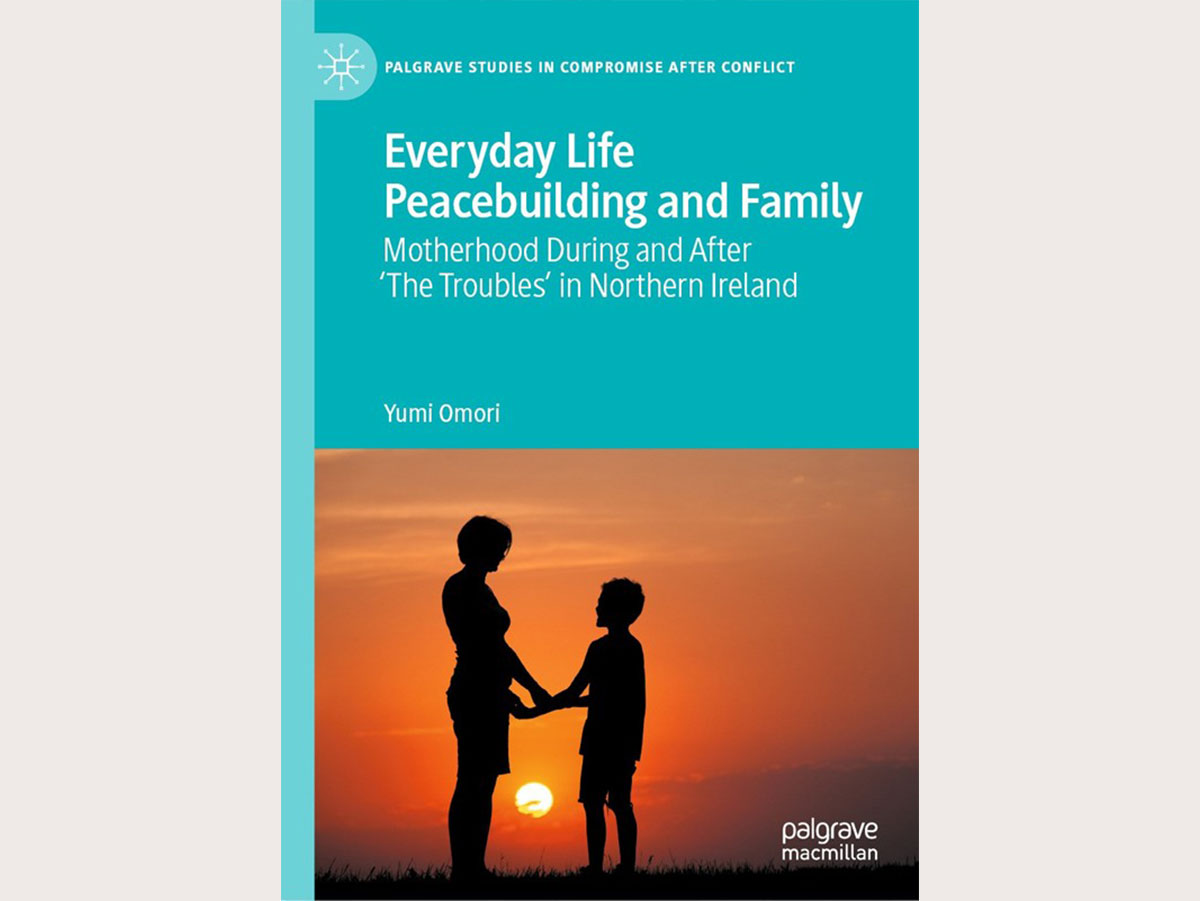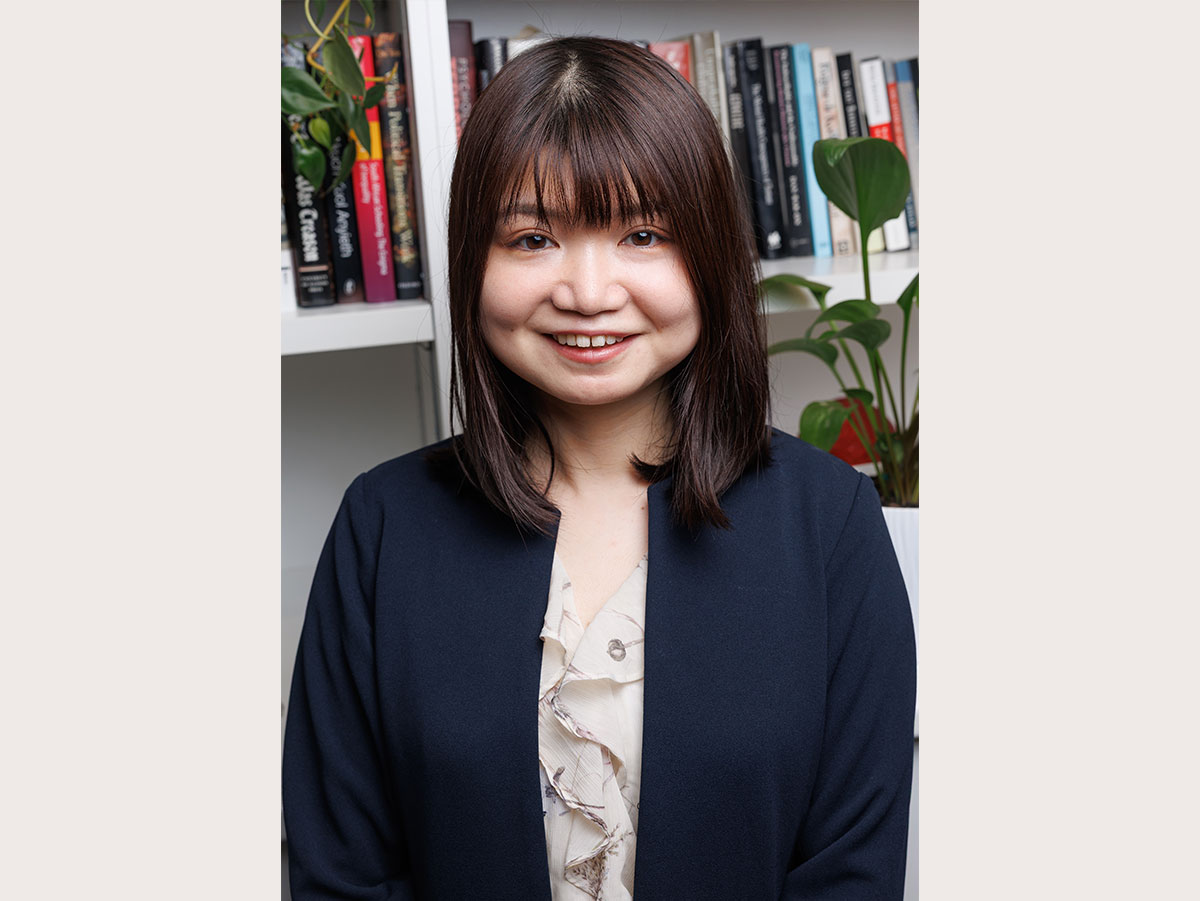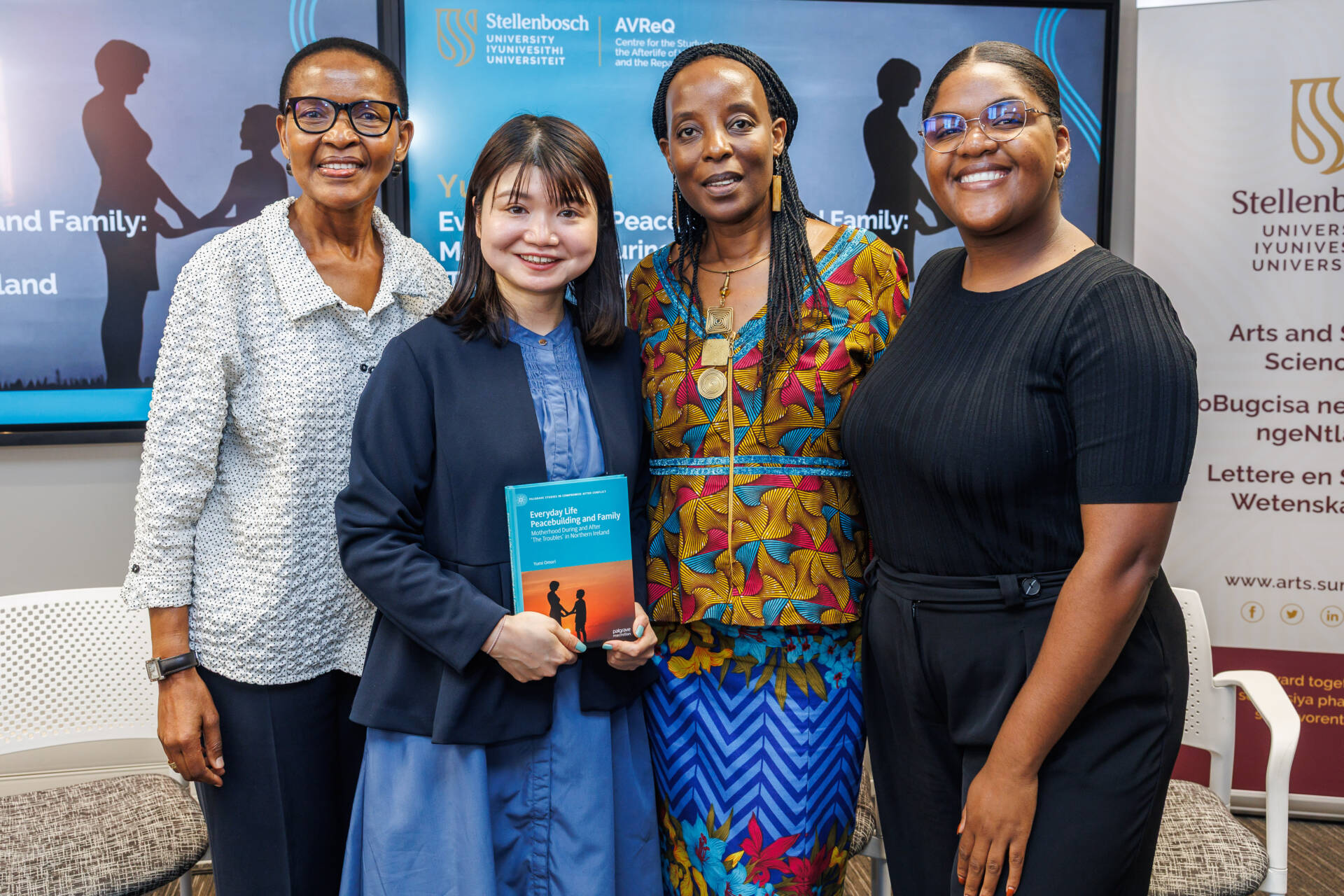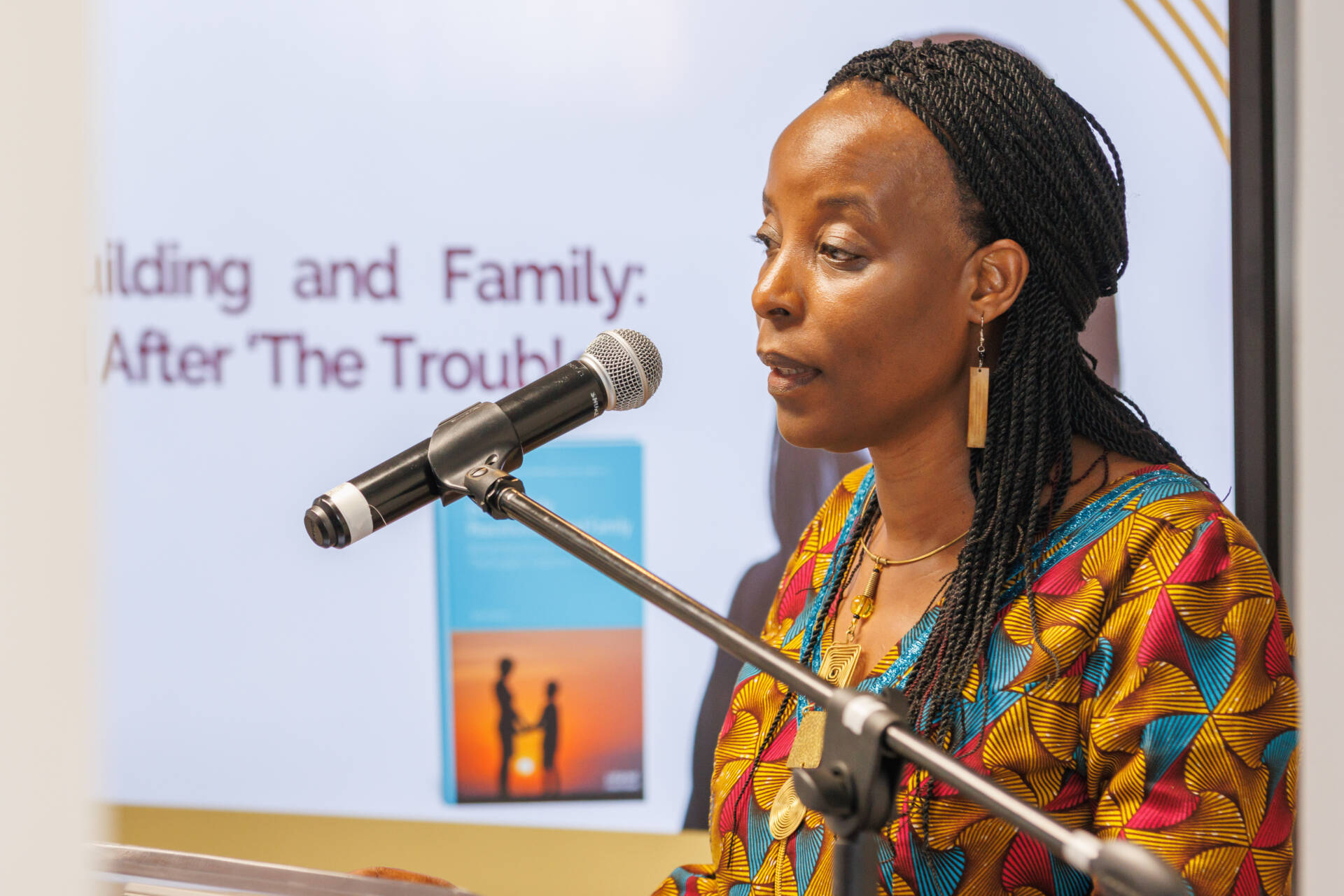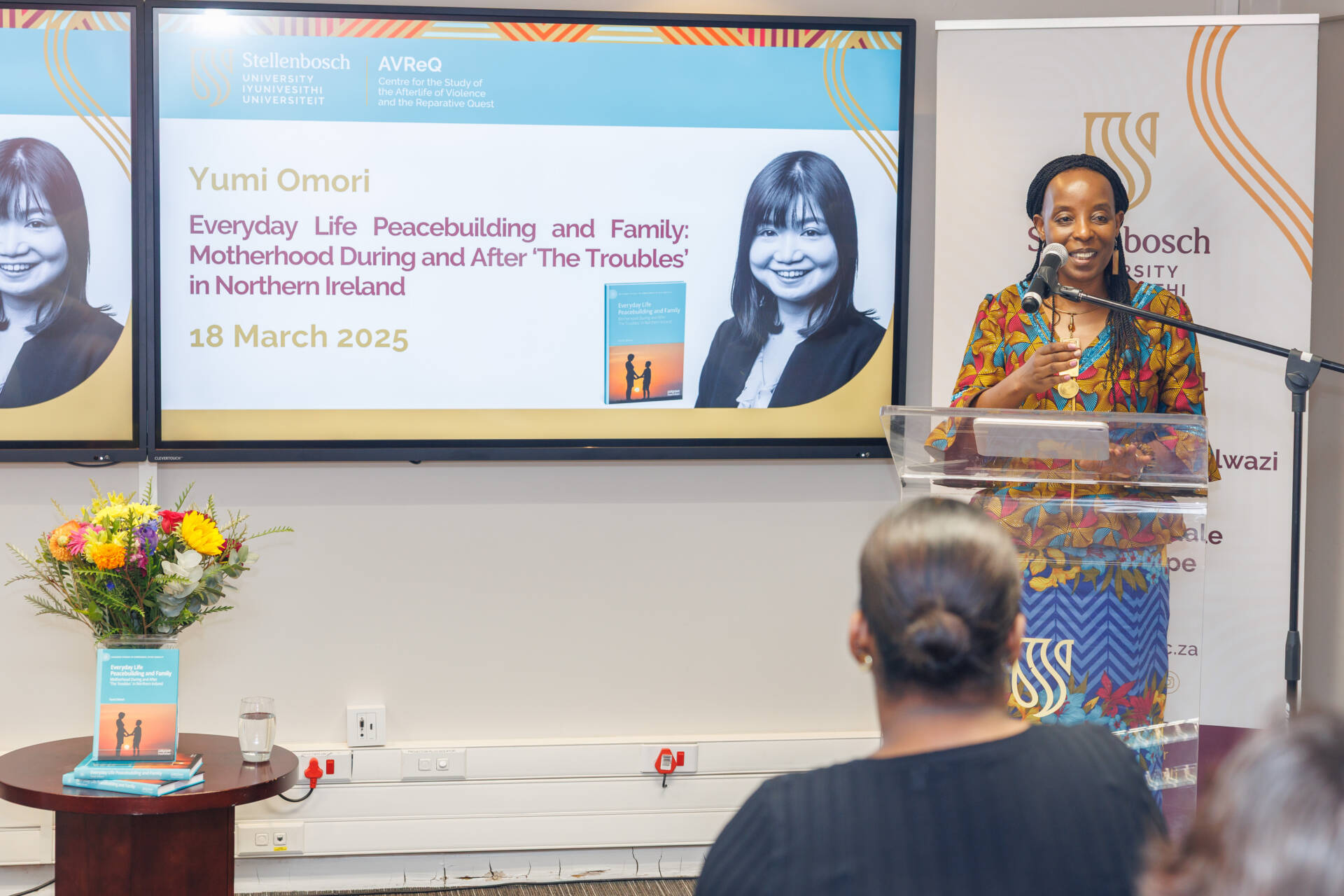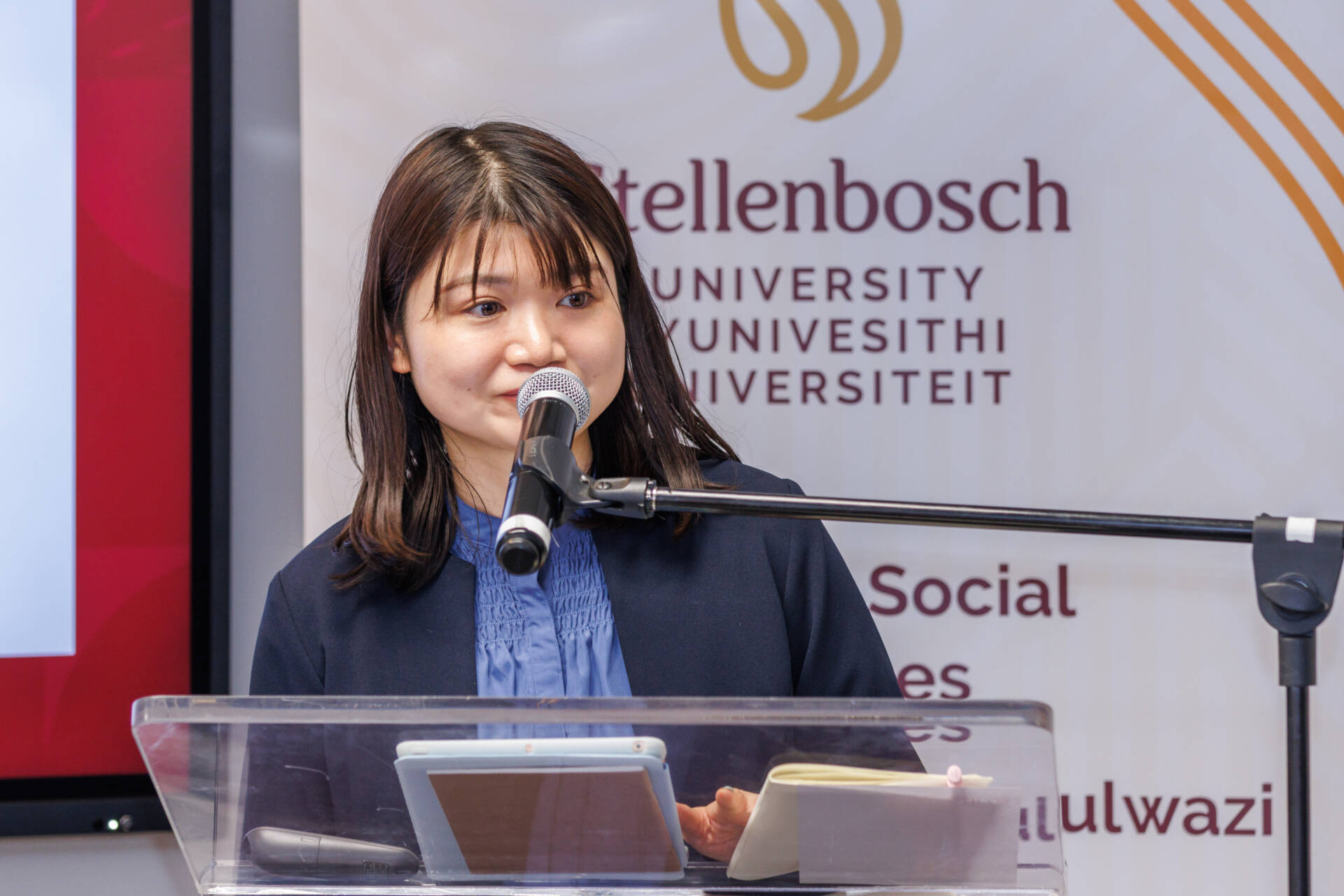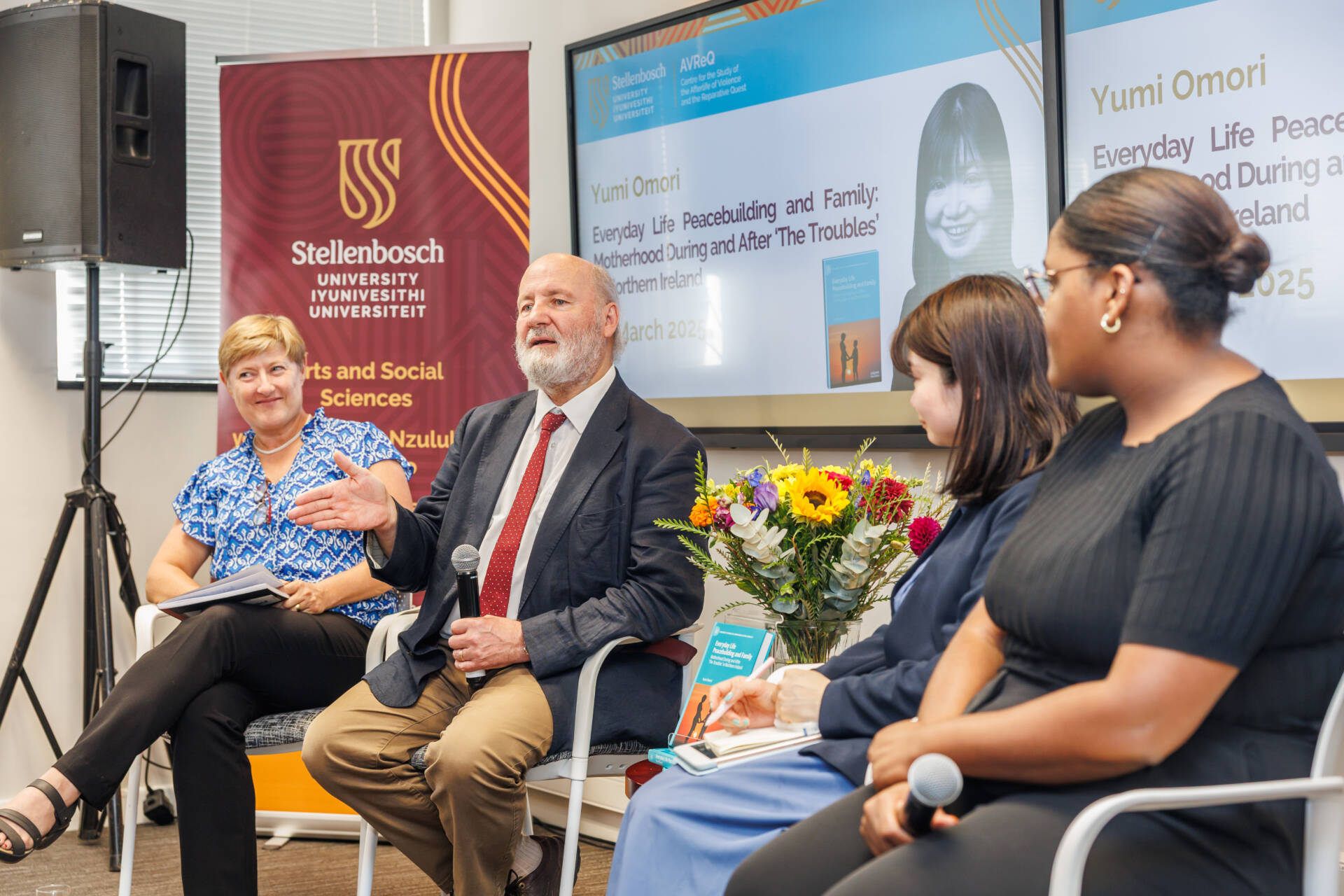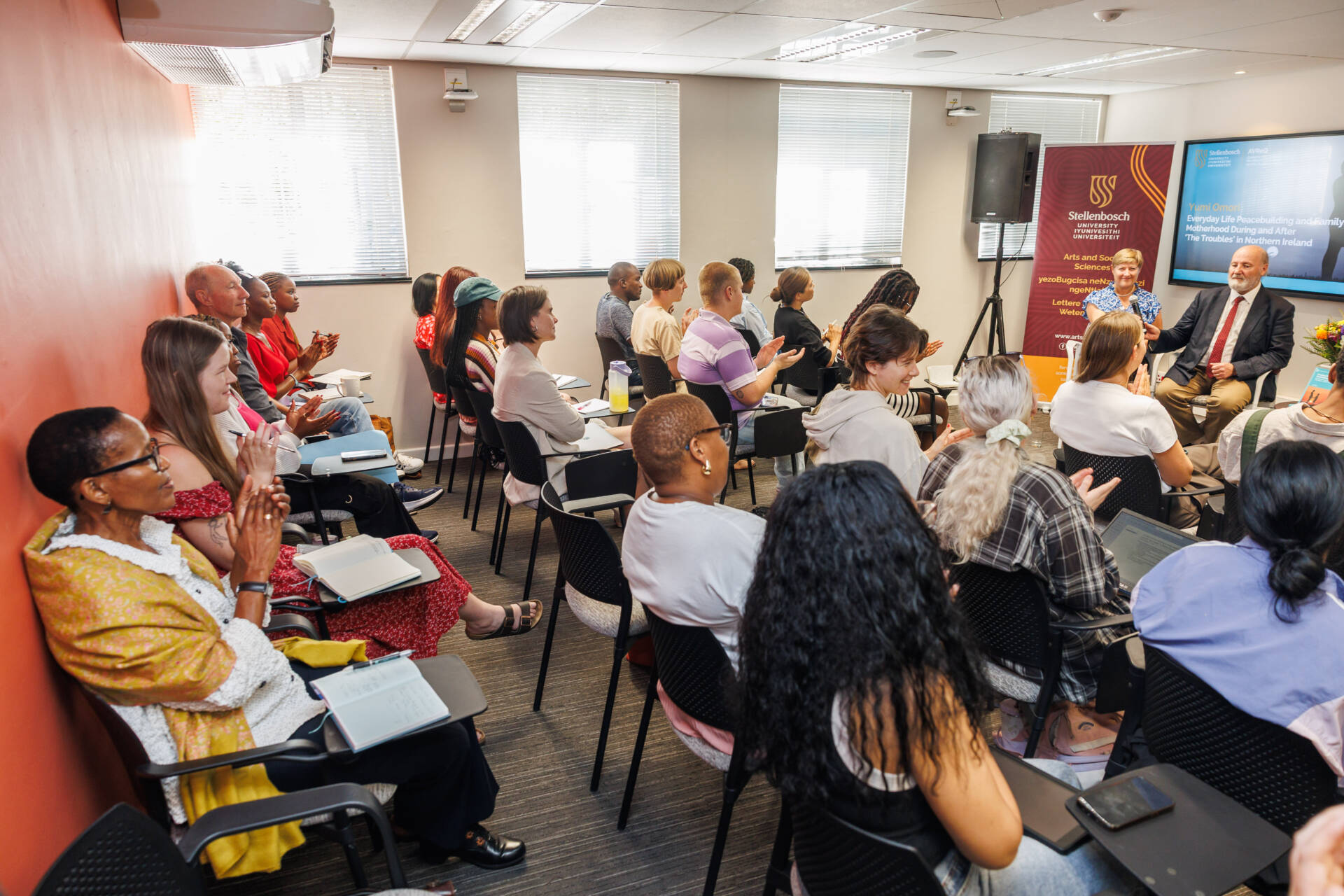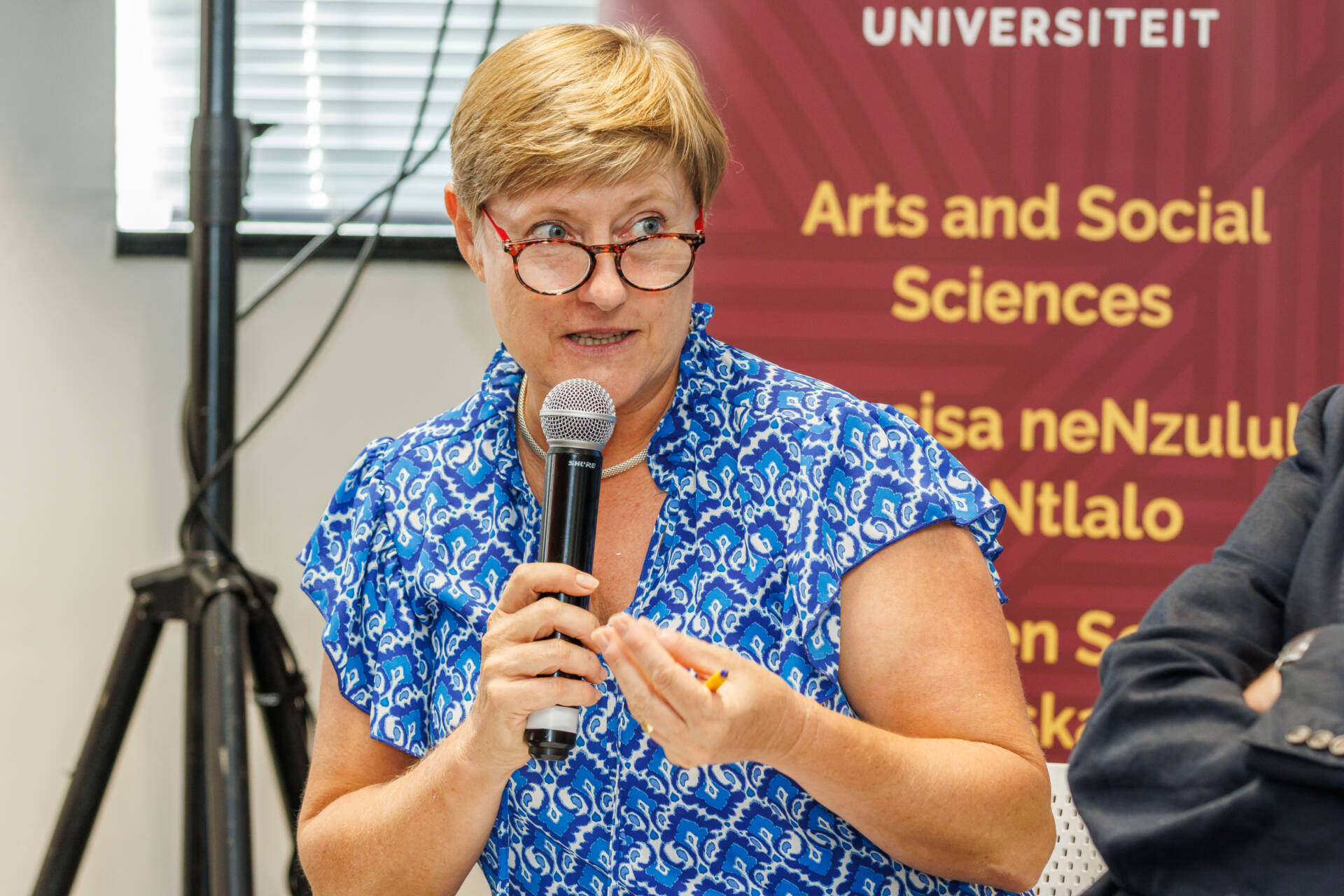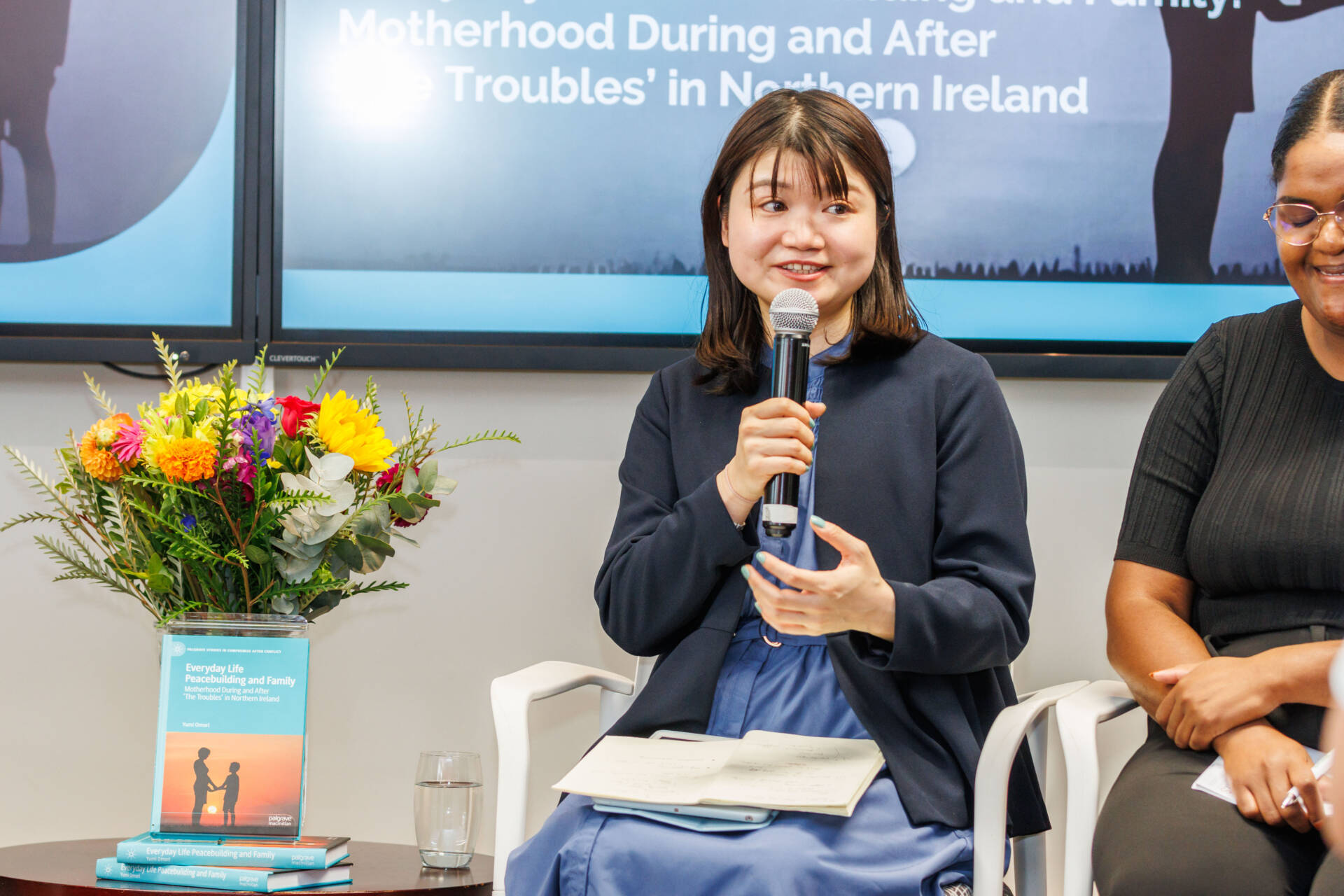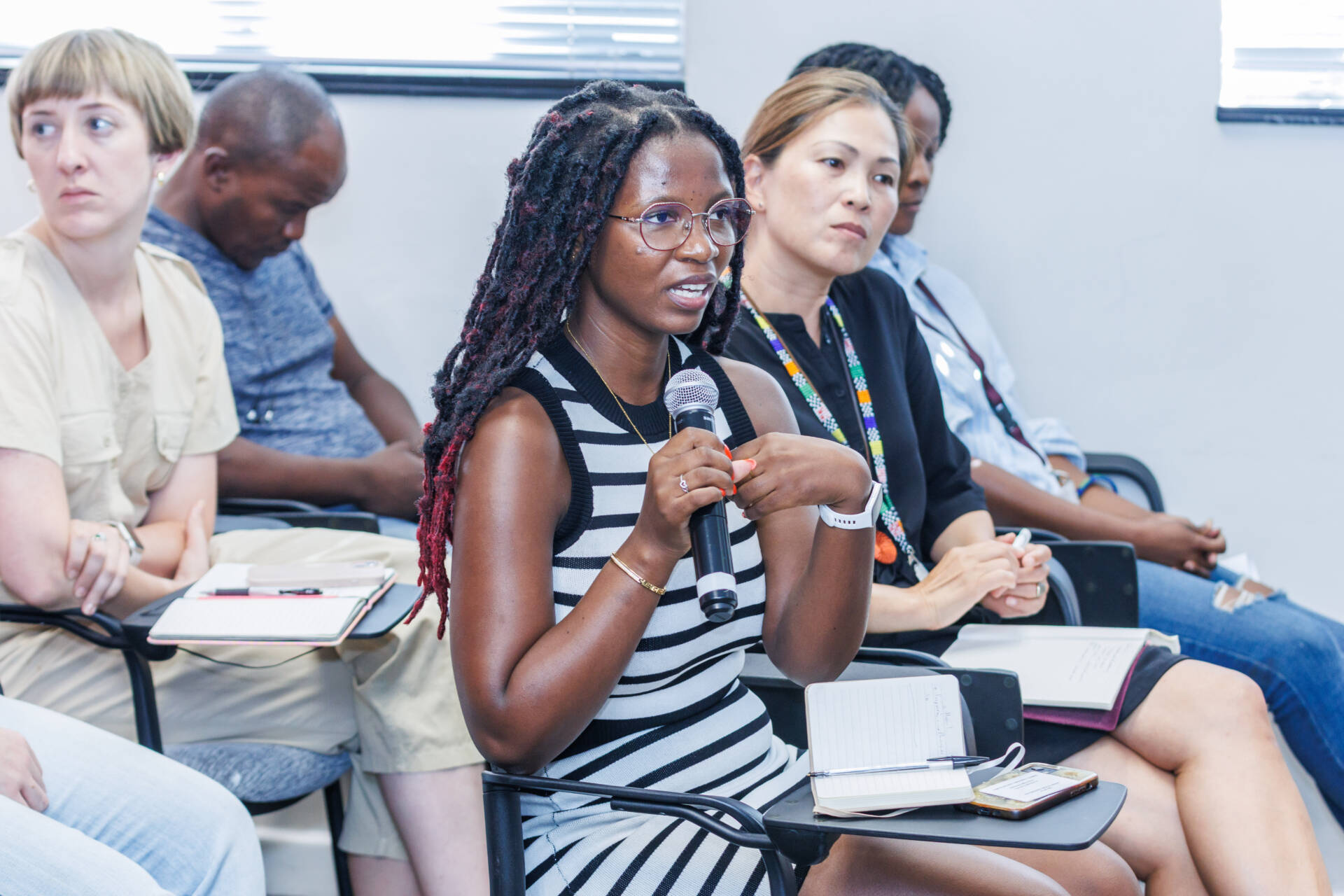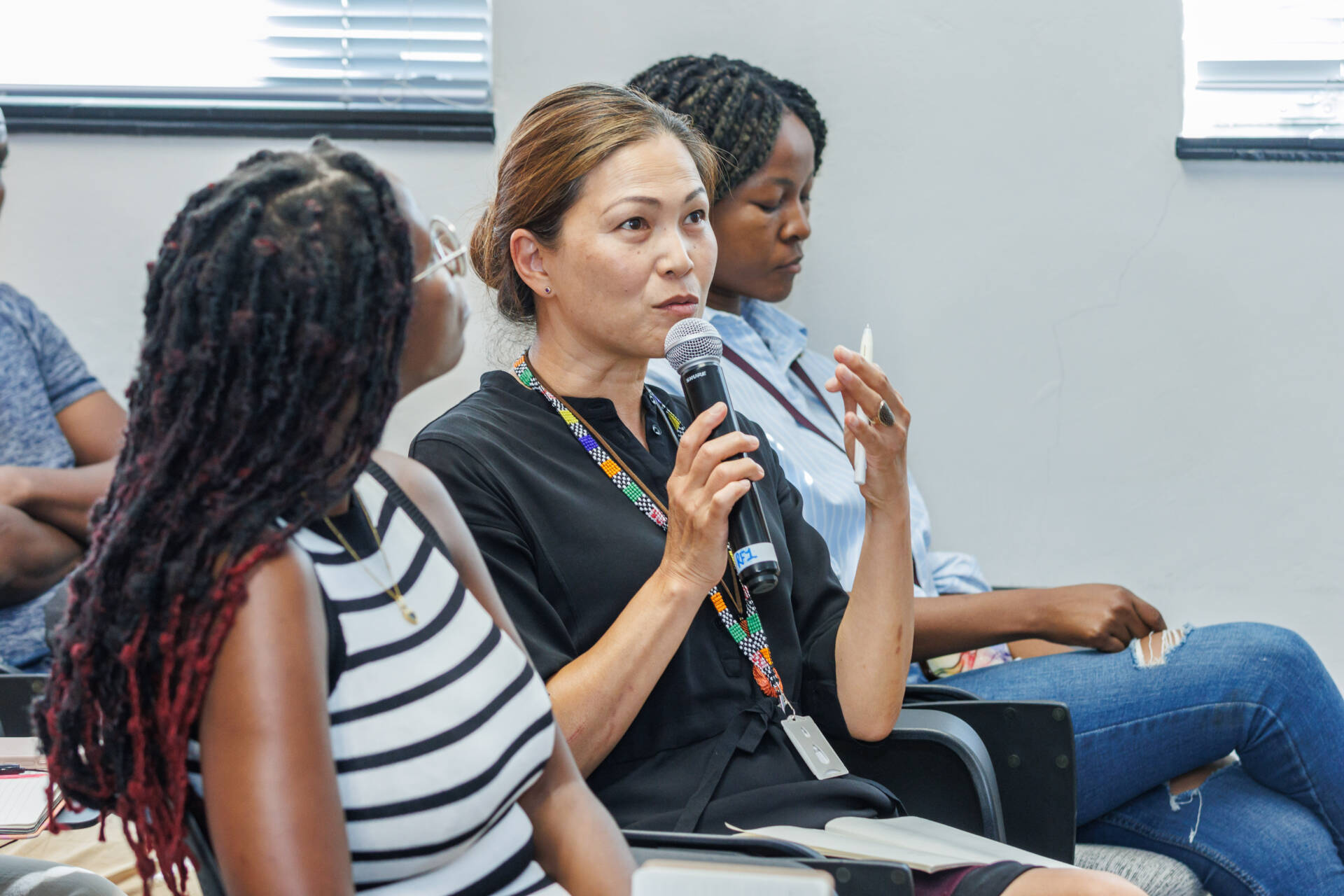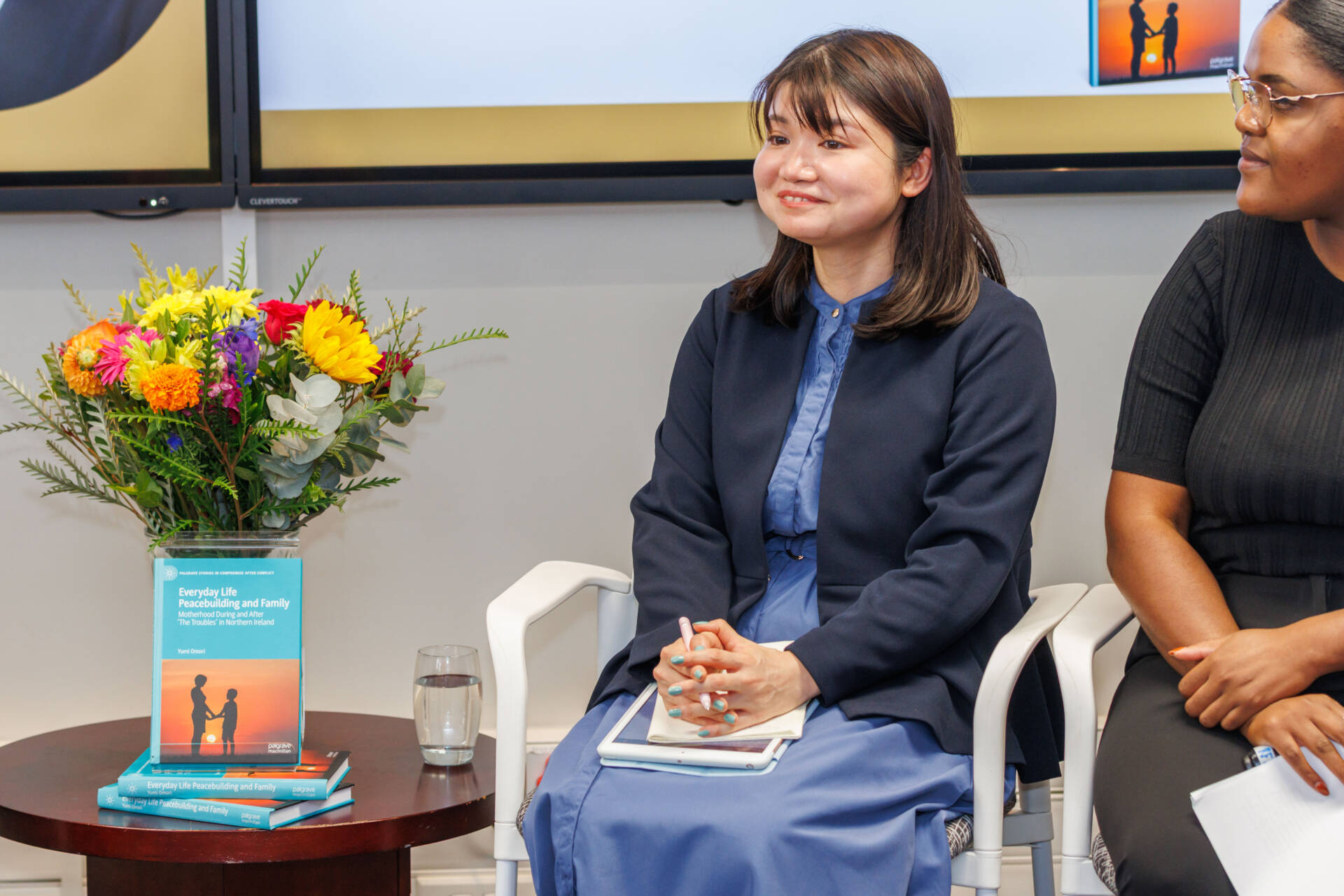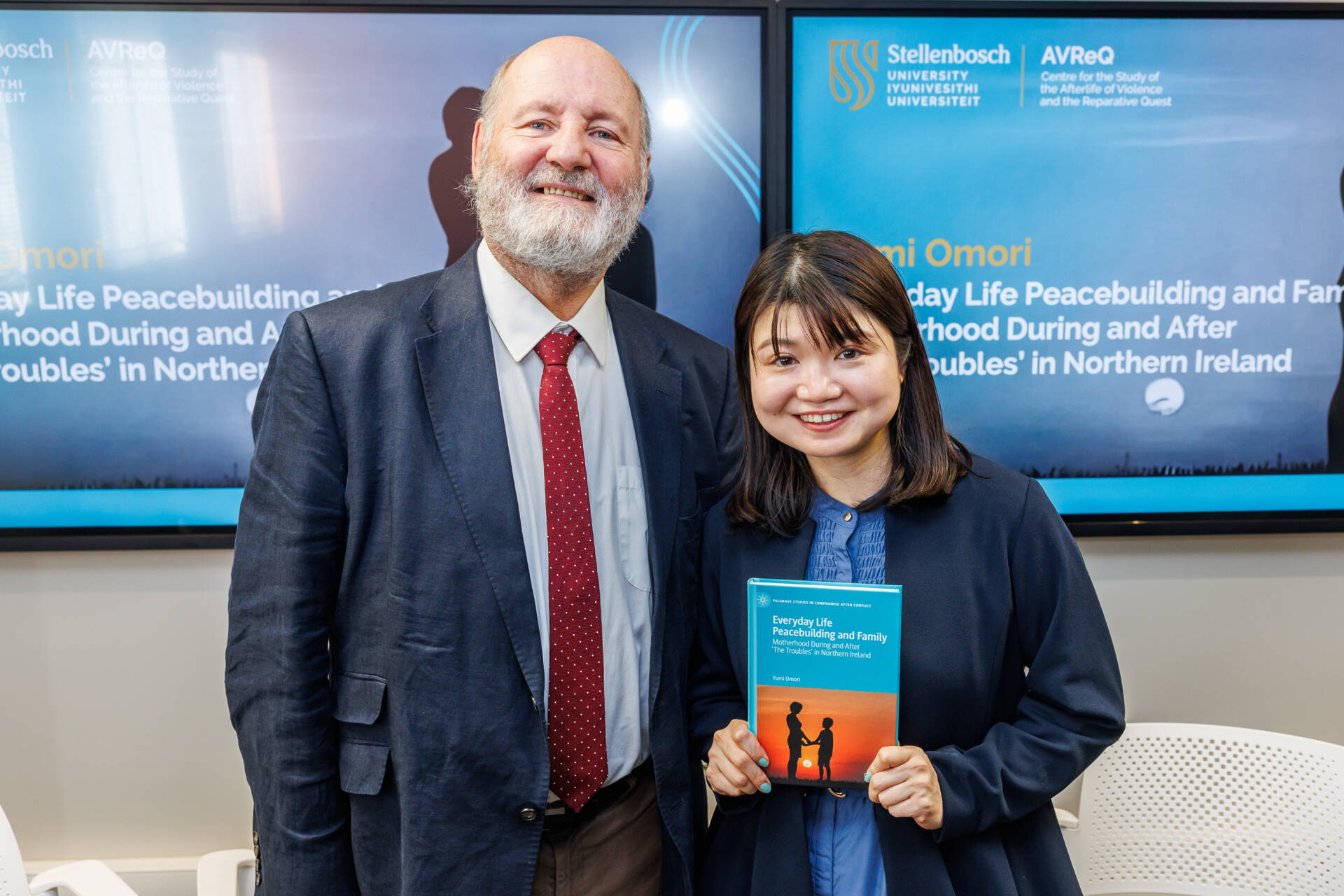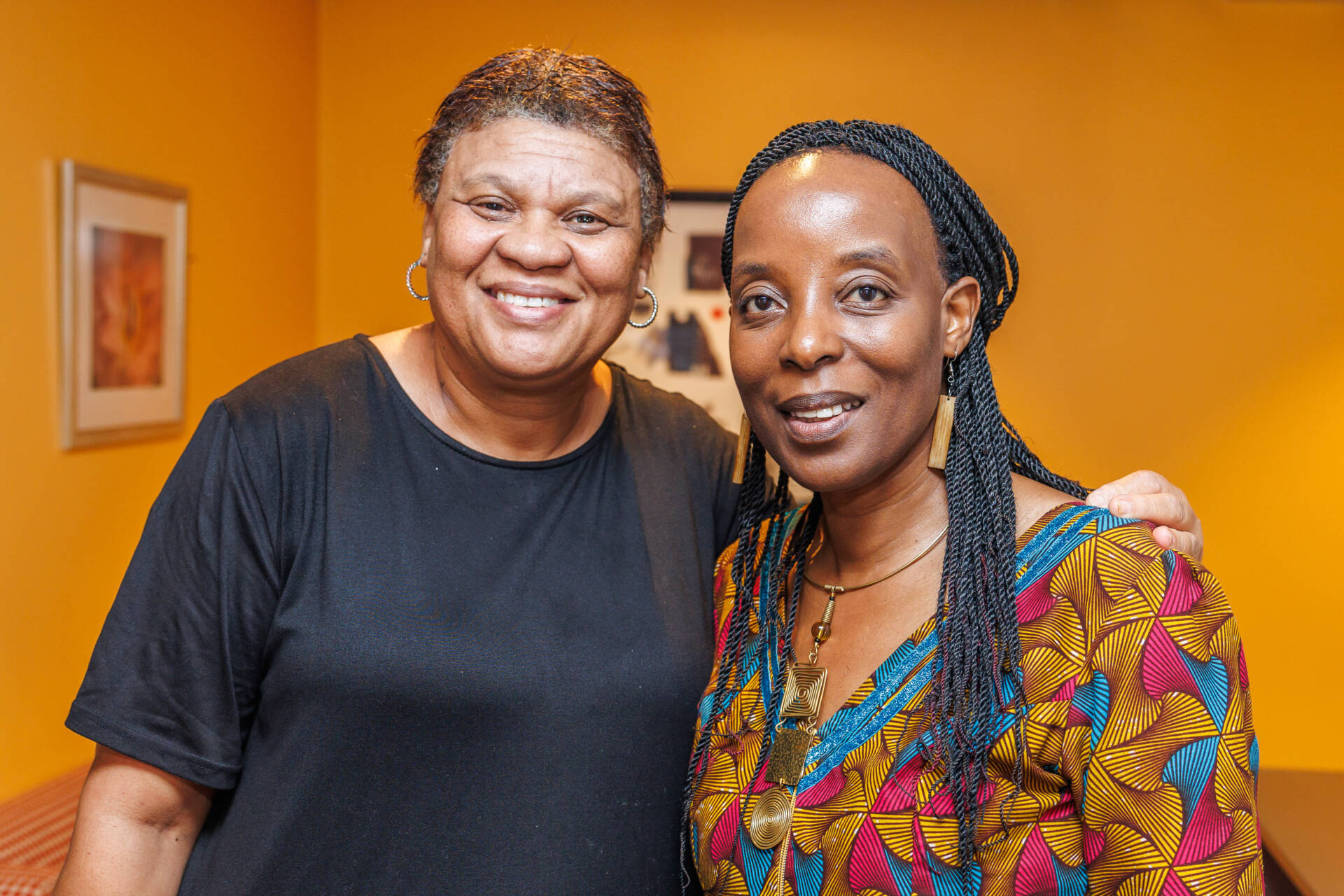The study of peacebuilding has long been dominated by elite-driven, top-down approaches, privileging formal negotiations and high-level diplomatic interventions. This predominant approach has failed to bring lasting peace in many parts of the world and called for attention to the locals in deeply divided societies. Dr Yumi Omori’s recently published book, Everyday Life Peacebuilding and Family: Motherhood During and After ‘The Troubles’ in Northern Ireland, makes new contributions to the so-called ‘local turn’ peace research by foregrounding the often-overlooked role of mothers in conflict transformation.
Launching her book at AVReQ, Omori engaged an audience of scholars, researchers, and students in a compelling discussion about how the everyday practices and reasoning processes of ordinary women contribute to peacebuilding in deeply divided societies. Drawing on life history interviews with mothers from both Catholic and Protestant communities in Northern Ireland, Omori’s work sheds light on how women navigate and resist the effects of violence, advocating for a more inclusive understanding of peacebuilding.
Reconceptualizing Peacebuilding Through Everyday Practices
Traditional peace and conflict studies have often marginalized the voices of ordinary individuals, especially women. Omori’s book corrects this imbalance by positioning motherhood as a critical site of peacebuilding. As Prof Sibu Moyo noted in her opening remarks, the book highlights “the gendered dimensions of coping with violence and its aftermath,” emphasizing how women’s caregiving roles intersect with broader socio-political processes.
Prof Moyo also underscored the importance of fostering collaborative and interdisciplinary spaces for emerging scholars working on themes of conflict, trauma, and peacebuilding. She pointed out that the challenges faced by mothers in post-conflict societies require engagement across multiple disciplines, including sociology, psychology, anthropology, and political science. “The role of interdisciplinary spaces is crucial, [she stated] because real-world challenges are complex, and we need diverse perspectives to develop meaningful, context-sensitive solutions.”
Furthermore, Moyo highlighted the need for platforms that enable young scholars, particularly postdoctoral researchers, to engage in cross-disciplinary dialogue. She noted that one of the key takeaways from Omori’s work is the necessity of creating opportunities for emerging researchers to engage with experts in the field. “Our responsibility is to ensure that the next generation of scholars has the support, mentorship, and institutional backing needed to undertake rigorous and impactful research,” she emphasized. This is especially relevant in the context of peacebuilding, where grassroots insights, like those of Omori’s study, must be integrated into broader academic and policy discussions.
The concept of “everyday peace,” first introduced by international relations scholar Roger Mac Ginty, is central to Omori’s analysis. She expands this idea through a sociological lens, arguing that peacebuilding is not just about formal policies or conflict resolution frameworks but is deeply embedded in the daily lives and reasoning processes of individuals. Her study examines how mothers, often unconsciously, engage in peacebuilding by regulating the exposure of their children to sectarian violence, resisting extremist narratives, and fostering cross-community understanding.
Fiona Ross, an NRF-rated Professor of Anthropology and respondent, emphasized the significance of Omori’s focus on the everyday, noting how the book reveals “the extraordinary emotional effort mothers go to in order to protect their families and reframe narratives of conflict.” Prof Ross reflected on how Omori’s work parallels South African contexts, where historical divisions continue to shape contemporary life. “The question of how norms are made and remade is at the heart of any transition process,” Ross stated, adding that Omori’s research provides a nuanced perspective on how personal and political struggles intersect in post-conflict societies.
Motherhood in Wartime and Post-Conflict Northern Ireland
One of the most striking aspects of Omori’s research is its comparative approach, which juxtaposes the experiences of mothers raising children during The Troubles with those navigating post-conflict motherhood. Many mothers described the act of shielding their children from violence as a routine yet deeply political act. One respondent recounted how she timed when her children could play outside: “if the IRA [Irish Republican Army] was gonna attack, it would probably be in the afternoon, and if the Loyalists were gonna attack, it was going to be in the evening. So, you sort of had a small window where your children played out.”
Such narratives illustrate how violence became normalized in the daily lives of Northern Irish families. Omori highlights the paradox of everyday peace: while these mothers sought to minimize their children’s direct exposure to violence, they also internalized it as part of their routine decision-making. The idea of “getting on with it,” as expressed by several participants, underscores how individuals in conflict-affected societies adapt to instability while simultaneously striving to protect future generations from repeating cycles of violence.
Beyond the Maternal Instinct: The Social Construction of Peacebuilding
One of the most profound contributions of Omori’s work is her challenge to the assumption that women’s peacebuilding efforts stem from an inherent maternal instinct. Instead, she argues that the caregiving roles of mothers are shaped by social expectations and gendered moral orders. As one interviewee stated: “Women are strong because they have to be. There was no choice.”
This insight disrupts simplistic narratives that frame women as natural peacekeepers, instead recognizing the structural constraints that push them into these roles. Prof John Brewer, renowned sociologist, emphasized this point, noting that “women are seen as natural caregivers in patriarchal societies, but Omori’s research shows that peacebuilding is not just a passive outcome of motherhood, it is an active, reasoning process.”
Brewer further reflected on the broader implications of Omori’s findings, drawing connections between victimhood and peacebuilding. “What we see in post-conflict societies is that many first-generation victims, particularly mothers, take on the responsibility of ensuring that their children and grandchildren do not inherit the divisions of the past,” he observed. “This is not because they are naturally inclined to be peacebuilders, but because they have lived through the pain and refuse to let history repeat itself.”
This distinction has significant implications for peacebuilding research and policy. If women’s roles in fostering peace are socially constructed rather than biologically determined, then institutions must take a more deliberate approach in supporting them. This includes creating policies that recognize the labour of peacebuilding within the domestic sphere and integrating grassroots women’s experiences into formal peace processes.
Post-Conflict Motherhood: Navigating Trauma and Transformation
While many mothers in Omori’s study actively worked to insulate their children from sectarian divisions, others struggled with the emotional legacies of The Troubles. For some, unresolved trauma manifested in hyper-vigilant parenting. One participant, whose brother was killed during the conflict, described how she constantly called her children to check if they were safe: “I often have panic attacks when I hear an ambulance, believing something has happened to them.”
Despite these challenges, many mothers adopted what Omori terms “non-sectarian mothering,” a form of parenting that seeks to break cycles of hatred. Some Protestant mothers encouraged their children to learn Irish, a language historically associated with Catholic nationalism, while others sent their children to integrated schools. These seemingly small acts of resistance contribute to a gradual reimagining of communal identities, highlighting the transformative potential of everyday life peacebuilding.
Implications for Today and Future Research
Omori’s study has profound implications for both academic scholarship and policymaking. Her research underscores the need for peacebuilding frameworks to move beyond elite negotiations and formal agreements, instead recognizing and valuing the contributions of ordinary individuals. As Prof Brewer pointed out, while there is growing recognition of women as peacebuilders, this acknowledgment often remains limited to high-profile figures. “What Yumi’s work shows us, [he stated], is that peacebuilding happens at a grassroots level, in the mundane but powerful acts of mothers who simply refuse to let their children inherit the divisions of the past.”
Prof Ross added that Omori’s research provides a much-needed alternative to dominant transitional justice narratives. “The transition literature often assumes a linear movement from conflict to peace, but what Omori reveals is a much more delicate, ongoing negotiation. The past lingers, and everyday life is where the real work of transition happens,” she explained. This research also calls for greater institutional support for women in post-conflict societies. Governments and peacebuilding organizations must invest in policies that address the mental health needs of mothers, provide economic stability, and create platforms for grassroots women to share their experiences.
The Power of the Everyday
Dr Yumi Omori’s work is a testament to the power of everyday life as a site of resistance, transformation, and peacebuilding. By shifting the lens from elite-driven narratives to the lived experiences of ordinary mothers, she challenges conventional understandings of conflict resolution and highlights the nuanced ways in which peace is negotiated in daily life. Her research not only deepens our understanding of the Northern Irish context but also offers valuable insights for other post-conflict societies, including South Africa. As we continue to grapple with the legacies of violence and division, Omori’s book serves as both a scholarly contribution and a call to action: to recognize, support, and learn from those who build peace not in conference rooms, but in the quiet, persistent efforts of everyday life.
